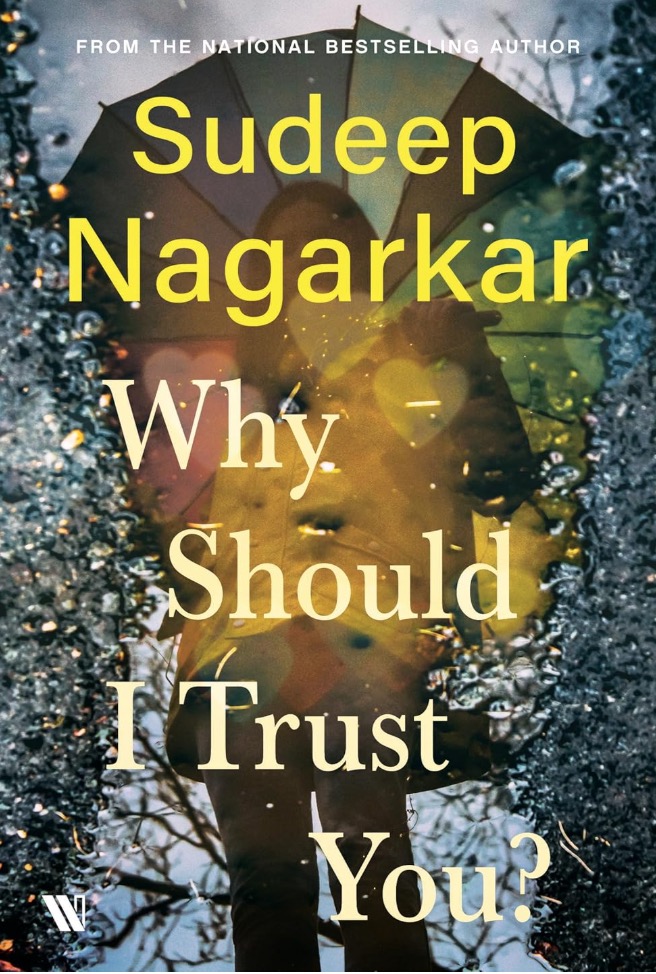Why Should i trust you - Novel
 Book Title: Why Should I Trust You
Book Title: Why Should I Trust You
Author: Sudeep Nagarkar
Pages: 230 • Language: English
Sudeep Nagarkar’s Why Should I Trust You braids together three dependable threads—amnesia, first‑love rekindled, and family secrets—into a brisk, emotionally accessible campus thriller. The premise is immediately engaging: Nandini wakes from a year‑long coma after a car crash that killed her mother and erased much of her past. Her aunt, Maasi, nudges her back to normalcy by insisting she rejoin college from the first year. The campus setting is not just wallpaper; it gives Nandini a living laboratory for re‑discovering herself—new friendships, half‑remembered routines, and the nagging sense that something vital sits just beyond reach.
Enter Sahil. At first a stranger, he slowly emerges as the boy she loved before the accident. Their interactions are written in clean, uncomplicated prose: gentle phone calls, steady reassurances, and the tender awkwardness of one person holding space while another rebuilds a life from fragments. As Sahil fills in gaps, Nandini’s questions multiply rather than shrink: Where were we going that night? Who was driving? Why is my father a ghost in my daily life yet powerful enough to appear in headlines?
The book’s middle section shifts the stakes from private grief to public power. Nandini’s father, a Delhi industrialist, reaches out with money, status, and a persuasive promise of safety. Nagarkar positions him as a man whose success buys silence, and the moral line he crosses—linked to illegal business uncovered by Nandini’s mother—recasts the “accident” as consequence rather than fate. This is where the novel finds its engine: Nandini must decide whether to expose a parent or accept the protection he offers. The trust question of the title echoes in every relationship—between daughter and father, lovers past and present, and even Nandini and her own memory.
Stylistically, the writing favors momentum over ornament. Chapters move quickly; scenes end on hooks that push you forward. The suspense is steady rather than breathless, and while a few conversations could be tighter or clearer, the through‑line never wobbles: Nandini is searching for truth, not just memories. The love scenes between Nandini and Sahil are tender and mercifully restrained; at times they do feel rushed, with big emotional shifts compressed into short beats. Some readers may also raise an eyebrow at the level of independence first‑year students enjoy, but these liberties are typical of campus romances and will not bother genre fans.
Where the novel particularly succeeds is in its women. Maasi’s practical warmth grounds the story, and Nandini’s arc—moving from confusion to conviction—feels earned. Thematically, the book treats memory loss not as a gimmick but as a moral test: when your past is missing, whose version of it will you trust? The father–daughter dynamic sharpens that question, and the reveal about the crash reframes Nandini’s grief as a call to action rather than a wound to nurse.
Could the narrative go deeper? Perhaps. A slower burn in the third act—especially around the father’s motivations and the legal/ethical fallout—might have added heft. A few more textured details of college life, Delhi’s corporate circles, or investigative legwork would also have enriched the world.
Still, Why Should I Trust You accomplishes what it sets out to do. It’s swift, readable, and emotionally clear, with enough moral tension to keep you invested across 230 pages. If you enjoy simple, direct language; campus romance with a conscience; and the pull of family secrets revealed step by step, this novel is an easy recommendation. At its center is a heroine who learns that trust cannot be borrowed from love or bought with wealth—it must be built, tested, and finally chosen.
Please watch below video for Review in Audio format and comment your thoughts
